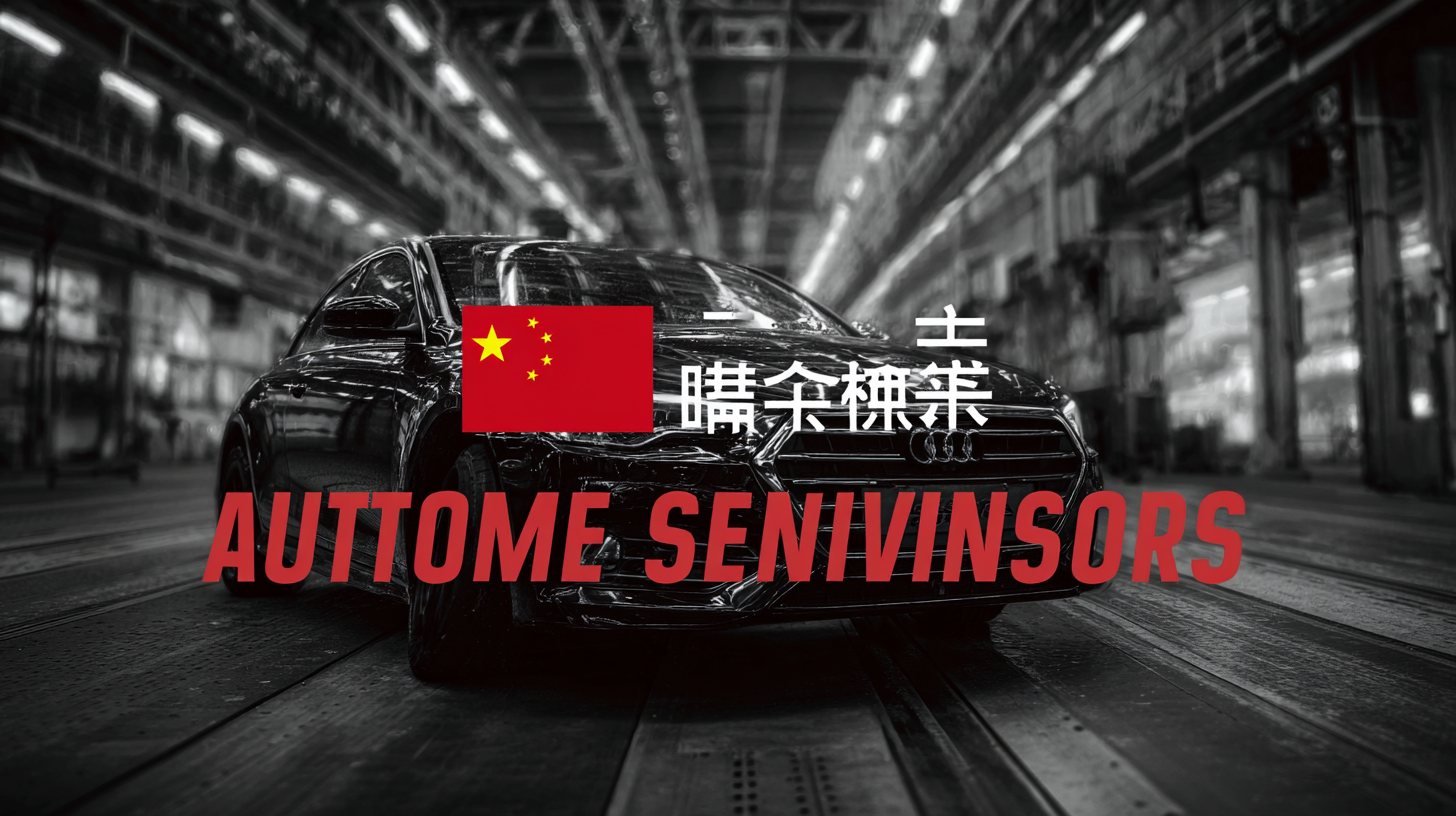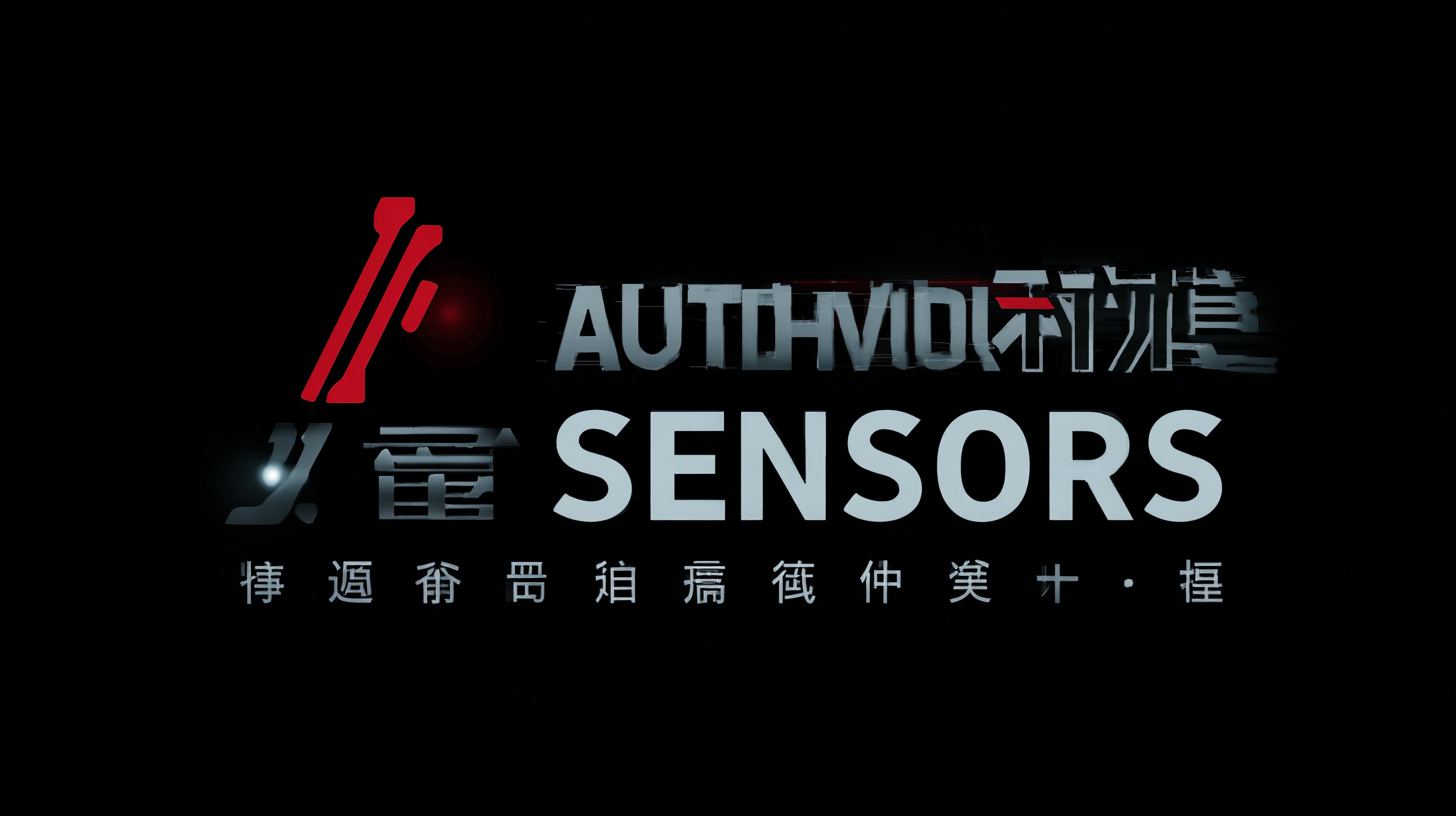- English
- русский
- العربية
- tiếng Việt
- Türkçe
- Deutsch
- 日本語
- 한국어
- ภาษาไทย
- Indonesia
- שפה עברית
- Português
- Español
- Français
- Italiano
- Nederlands
- Polski
- Svenska
- magyar
- Malay
- বাংলা ভাষার
- Dansk
- Suomi
- हिन्दी
- Pilipino
- Gaeilge
- تمل
- český
- ελληνικά
- український
- Javanese
- فارسی
- தமிழ்
- తెలుగు
- नेपाली
- Burmese
- български
- ລາວ
- Latine
- Қазақша
- Euskal
- Azərbaycan
- Slovenský jazyk
- Македонски
- Lietuvos
- Eesti Keel
- Română
- Slovenski
- मराठी
- Srpski језик

China's Automotive Sensors: Leading Global Exports with Unmatched Quality and Precision
In recent years, China has emerged as a formidable leader in the global automotive sensors market, showcasing not only unmatched quality and precision but also a remarkable capacity for innovation. As of 2022, the global automotive sensor market was valued at approximately $28 billion and is projected to reach around $65 billion by 2030, driven largely by the increasing demand for advanced driver assistance systems (ADAS) and autonomous vehicles. China's automotive sensors account for a significant share of this growth, with the country producing over 40% of the world’s automotive sensors, according to data from the International Society of Automotive Engineers. This growth trajectory highlights the critical role that automotive sensors play in enhancing vehicle safety, efficiency, and performance, underscoring their importance in the evolving landscape of the automotive industry.

As we delve deeper into the solutions for automotive sensors, we will explore how China's innovations are setting benchmarks for global standards and driving the future of mobility.
Understanding Automotive Sensors: An Overview of Their Importance in Modern Vehicles
In today's rapidly evolving automotive landscape, sensors play a pivotal role in enhancing vehicle safety and functionality. Modern vehicles are equipped with an array of sensors that help in monitoring, diagnosing, and controlling critical systems, thereby ensuring a safer driving experience. These miniature yet powerful components are essential for advanced driver-assistance systems (ADAS), which include features like adaptive cruise control, lane departure warnings, and automatic emergency braking. The integration of these technologies has revolutionized vehicle designs and significantly reduced the occurrence of accidents.
The importance of automotive sensors cannot be overstated, as they are integral to the overall efficiency of modern transportation systems. From early crash satellites to more sophisticated imaging sensors, each type contributes uniquely to the vehicle's operational capabilities. For instance, intelligent battery sensors are becoming increasingly vital as they optimize energy management, significantly impacting the rise of electric vehicles. As the demand for smart car technologies continues to rise, the automotive sensor market is projected to experience substantial growth, highlighting their crucial role in the future of transportation.
The Manufacturing Process: How China Produces High-Quality Automotive Sensors
China has established itself as a powerhouse in the automotive sensors market, combining innovative manufacturing processes with stringent quality control measures. According to a report by TechNavio, the global automotive sensor market is expected to grow by $4.1 billion from 2021 to 2025, with China leading the way in both production and innovation. The country’s manufacturers leverage advanced technologies such as Industry 4.0, utilizing IoT and AI to optimize their manufacturing processes and ensure precision in every component they produce.
A critical factor in this success is China's integration of automation in the manufacturing process, which not only enhances efficiency but also minimizes human error. For instance, automated assembly lines and robotics are regularly employed to create high-quality sensors for applications such as advanced driver-assistance systems (ADAS). According to a report by MarketsandMarkets, the demand for ADAS is expected to rise significantly, contributing to an increased need for reliable automotive sensors.
**Tips:** When choosing automotive sensors, look for products that meet international standards such as ISO 26262 for functional safety. Additionally, consider suppliers that facilitate transparent testing processes, as quality assurance is paramount in the automotive industry. Staying informed about market trends can also guide decisions toward more sustainable and innovative sensor technologies.
Key Technologies: Innovations Behind Precision in Automotive Sensor Design
 China has emerged as a powerhouse in automotive sensor manufacturing, driven by innovations that enhance the precision and reliability of these critical components. The nation accounted for over 30% of global automotive sensor exports in 2022, reflecting a robust growth trajectory fueled by advanced technologies. Key technologies, such as MEMS (Micro-Electro-Mechanical Systems), are at the forefront of this evolution. MEMS sensors provide unmatched accuracy in measuring various parameters, from temperature to pressure, significantly improving vehicle safety and performance metrics.
China has emerged as a powerhouse in automotive sensor manufacturing, driven by innovations that enhance the precision and reliability of these critical components. The nation accounted for over 30% of global automotive sensor exports in 2022, reflecting a robust growth trajectory fueled by advanced technologies. Key technologies, such as MEMS (Micro-Electro-Mechanical Systems), are at the forefront of this evolution. MEMS sensors provide unmatched accuracy in measuring various parameters, from temperature to pressure, significantly improving vehicle safety and performance metrics.
Tips: When selecting automotive sensors, prioritize those that utilize MEMS technology as they offer superior sensitivity and miniaturization. Moreover, consider sensors with built-in diagnostic capabilities, enhancing maintenance and operational reliability.
Moreover, innovations in AI and machine learning algorithms are revolutionizing sensor data processing, empowering real-time decision-making in autonomous vehicles. According to a report by IHS Markit, the automotive sensor market is projected to reach USD 50 billion by 2025, driven by the increasing demand for connected and self-driving cars. These advancements underscore China's commitment to not just meeting but exceeding global standards in automotive sensor design and production.
Tips: Regularly update your vehicle's sensor systems to ensure they leverage the latest technologies, ensuring optimal performance and safety on the road.
Quality Control Measures: Ensuring Reliability and Performance in Exports
China's automotive sensor industry has made significant strides in global exports, with an emphasis on maintaining high standards of quality control. As the demand for reliable automotive sensors continues to escalate, stringent quality control measures have become paramount to ensure the performance and reliability of these products. According to a report by MarketsandMarkets, the automotive sensor market is projected to grow from USD 25 billion in 2020 to over USD 40 billion by 2025, highlighting the increasing importance of precision engineering in this sector.
To uphold the integrity of their exports, Chinese manufacturers are implementing advanced quality assurance systems. The adoption of ISO/TS 16949 standards is prevalent, ensuring that companies meet global automotive quality standards. Furthermore, utilizing state-of-the-art testing facilities allows for thorough examinations of sensors under various conditions, thereby mitigating the risk of malfunctions. The rigorous testing ensures that products not only comply with international regulations but also exceed customer expectations for performance and reliability, solidifying China's position as a leader in the automotive sensor market.
By prioritizing quality control, China's automotive sensor manufacturers are not merely meeting the demands of global markets but are also setting a benchmark for excellence. With an eye on technological advancements and an unwavering commitment to performance, the industry is poised to sustain its reputation for producing sensors that are both cost-effective and reliable, contributing significantly to the evolution of the automotive sector worldwide.
Global Market Trends: China's Role in the Future of Automotive Sensor Supply Chain
As global automotive industries shift towards advanced technologies, China's automotive sensor market is poised to play a pivotal role in the future of the automotive sensor supply chain. The increasing demand for high-quality sensors that ensure enhanced vehicle performance, safety, and efficiency opens new avenues for Chinese manufacturers. With a strong focus on research and development, these companies are crafting sensors that not only meet but often surpass international quality standards, setting the stage for a competitive edge in the global market.

China's strategic investments in automotive sensor technology reflect its commitment to becoming a leader in innovation. As automakers transition to electric and autonomous vehicles, the need for sophisticated sensors—ranging from LiDAR to temperature and pressure sensors—grows exponentially. The country's robust production capabilities, coupled with its vast engineering talent pool, enable rapid development and deployment of cutting-edge solutions. This positions China as a key player not only in manufacturing but also in driving the technological advancements essential for the automotive industry's evolution.
